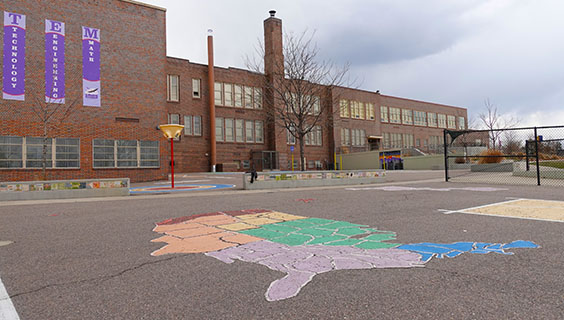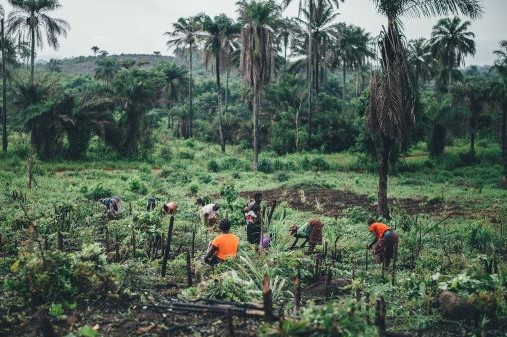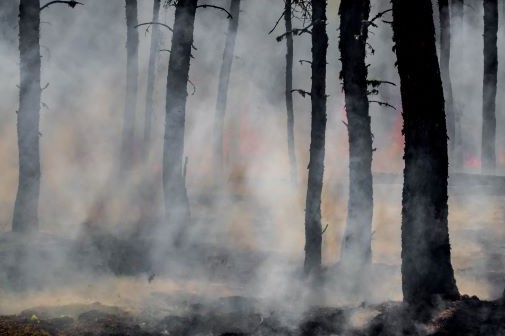John O'Loughlin, IBS researcher and Geography professor here at CU Boulder, was highlighted in an article posted by CU Boulder Today. The CU Boulder Today article discusses his recent study that was published in the journal Nature.
featured
Beverly Kingston and Bill Woodward in CU Boulder Today article
Beverly Kingston, Director of IBS’s Center for the Study and Prevention of Violence (CSPV), and Bill Woodward, director of training and technical assistance with CSPV were both recently been featured in an article on CU Boulder Today. The article highlighted CSPV's research efforts focused on violence prevention in schools. Kingston, Woodward, and CSPV have been researching youth violence and its relation to gun violence over the past few decades and Kingston will present her findings at Uniting to Prevent School Violence on April 16 at CU-Anschutz Medical Campus.
As the article states, Kingston believes the greatest change will come from shifting the culture within American schools, saying:
“True prevention is working upstream, intervening at the earliest point possible to prevent any child from ever wanting to do something violent. To get there will be a significant investment, but in the end it will save lives.”
Congratulations to Beverly, Bill, and CSPV!
______________________________________
Article summary written by Sierra Gonzalez-Speegle, CU Boulder Sophomore, Strategic Communications major
Women as Decision-Makers: Environmental Change
In an article published in Nature Climate Change, Krister Andersson, Nathan Cook, and Tara Grillos – all from the Center for the Governance of Natural Resources – demonstrate how involving more women in local decision-making improves the effectiveness of forest conservation efforts. The research study took place in forest communities from Indonesia, Peru, and Tanzania, and involved increasing the proportion of women within local decision-making groups. You can read the CU Boulder Today article here, or the full article is available from Nature Climate Change.
Allison Atteberry Evaluates Denver Public Schools’ ProComp System
Allison Atteberry, a Fellow at the Institute of Behavioral Sciences and Assistant Professor in the Research and Evaluation Methodology (REM) program within the School of Education at CU Boulder, has recently been recognized for her work evaluating Denver’s ProComp system. ProComp is intended to be a “pay-for-performance compensation system” for Denver’s public-school teachers. However, disagreements over ProComp led to teachers participating in a three-day strike in mid-February. As Atteberry points out, “There’s…. economics-based theories about why this [ProComp] should help, and then there’s the reality.” Unclear communication from Denver’s school districts about the bonus amount a teacher will receive and what counts as an incentive for a bonus have led to disagreements between the district and the Denver Classroom Teachers Association (DCTA), and what Atteberry describes as the two “not really meshing”. Read more about the walk-out and Atteberry’s interview with 9News here. Other news sites that have picked up the story include MSN, Reuters, and US News.
__________________________________________________
Article summary written by Sierra Gonzalez-Speegle, CU Boulder Sophomore, Strategic Communications major
The tragedy of the ‘Tragedy of the Commons’
CU's Arts and Sciences Magazine has published an article about a paper that Lori Hunter, Director of the CU Population Center and the Population Program here at the Institute of Behavioral Science, wrote for Nature Sustainability.
"We would not argue that population doesn’t matter at all when it comes to the environment. Of course it matters. But simply pointing a finger at others and saying you shouldn’t be here obscures all the other things we should be thinking about."
Lori Peek Featured on NPR’s Science Friday Book Club
Lori Peek, Director of the Natural Hazards Center at the Institute of Behavioral Sciences, was recently featured on NPR’s Science Friday Book Club. As a guest reader and speaker, Lori discussed the science-fiction novel The Fifth Season with host Ira Flatow and fellow guests, Christie Taylor and Lucy Jones. The Fifth Season is the first book in a trilogy series written by N.K. Jemisin. The novel centers around a world called The Stillness, a place where inhabitants repeatedly experience devastating natural disasters such as earthquakes and volcanoes. During the segment, Lori shared her knowledge about natural hazards, the ways they affect societies, and how to prepare for them. Check out the podcast on Science Friday’s website.
___________________________________
Article summary written by Sierra Gonzalez-Speegle, CU Boulder Sophomore, Strategic Communications major.
CUPC Post-doctoral Research Associate in Population-Environment Interactions
Available position
Post-doctoral Research Associate in Population-Environment Interactions
CU Population Center
Institute of Behavioral Science
University of Colorado Boulder
CU Population Center (CUPC) at the University of Colorado Boulder is currently recruiting a postdoctoral fellow with expertise in population-environment research, to start August 2019. The initial term of appointment is one year, but reappointment for a second year is possible subject to performance evaluation.
CUPC, housed in the Institute of Behavioral Science, is a national leader in demographic research on population health, environmental demography and migration patterns and processes. This postdoctoral research position builds on CUPC’s strengths in environmental demography, and within that area, candidates should have research expertise in migration-climate within livelihoods and potentially including health linkages, rural demographic processes, social vulnerability and natural hazards, and/or urbanization processes and their effects on the environment and health.
Key Responsibilities: Candidates must have experience in quantitative methods, the use of computational, statistical or data scientific approaches applied to social science or interdisciplinary research settings as well as data integration involving spatial and non-spatial data. They are expected to bring particular interest in interdisciplinary research and to participate in, and develop, projects collaborative with Earth Lab Boulder, an initiative harmonizing the wealth of Earth observation data to facilitate innovative scholarship using combinations of satellite, survey, and field data at various spatial and temporal scales.
Postdoctoral fellows are expected to spend time working independently as well as collaboratively with CUPC faculty affiliates on large-scale research projects and grant proposals. Postdoctoral researchers will be resident within CUPC in the Institute of Behavioral Science, will coordinate and/or participate in relevant working groups, regularly attend and present within the CUPC speaker series and other CUPC workshops and mentoring activities. We also expect fellows to attend the Population Association of America (PAA) annual meetings, submit two or more population-focused articles for publication during their time at CU Boulder, and help strengthen connections between CUPC and Earth Lab.
Qualifications: Candidates must be Ph.D. degree in social sciences related to CUPC research themes.
The University of Colorado Boulder is one of the largest employers in Boulder County and offers an inspiring higher education environment. The University of Colorado Boulder is an Equal Opportunity/Affirmative Action employer and offers excellent benefits, including medical, dental, retirement, paid time off, tuition benefit and ECO Pass.
Application review will begin March 6, 2019.
The candidate’s cover letter should describe research interests and a 2-year plan including potential collaborative links as related to above substantive areas of interest. Application materials will not be accepted via email and must be submitted through CU Boulder Jobs.
For questions or additional information: Please contact Lori Hunter, Director, CU Population Center: Lori.Hunter@colorado.edu
Dr. Lori Hunter – Nature Sustainability Comment
Dr. Lori Hunter had a "Comment" published online this week in Nature Sustainability, entitled “Hardin’s Oversimplification of Population Growth”. In summary:
“Garrett Hardin’s Tragedy of the Commons put forward underdeveloped arguments that continue to be reflected in simplistic debates about the drivers and implications of demographic dynamics. It’s time to embrace the complexity that Hardin lacked in order to develop better-informed policy.”
Please read the full article here.









